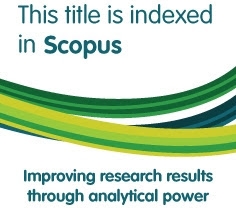Protecting Women from Domestic Violence: Islam, Family Law, and the State in Indonesia
Abstract
Keywords
Full Text:
PDFReferences
Ahmad, Abu Umar Faruq, and M. Kabir Hassan. 2007. “Riba and Islamic Banking.” Journal of Islamic Economics, Banking and Finance 3(1): 1–33.
Alfitri. 2012. “Legal Reform Project, Access to Justice and Gender Equity in Indonesia.” Indonesian Journal of International Law 9(2).
———. 2014. “Women’s Rights and Gender Equality Issues in Islamic Law in Indonesia: The Need to Re-Read Women's Status in the Islamic Religious Texts.” Mazahib 13(1): 57812.
———. 2015. “Whose Authority? Contesting and Negotiating the Idea of a Legitimate Interpretation of Islamic Law in Indonesia.” Asian J. Comp. Law Asian Journal of Comparative Law 10(02): 191–212.
Anwar, Zainah, and Jana Rumminger. 2007. “Justice and Equality in Muslim Family Laws: Challenges, Possibilities, and Strategies for Reform’.” Washington and Lee Law Review 64(4): 1529. https://scholarlycommons.law.wlu.edu/wlulr/vol64/iss4/12.
Azra, Azyumardi. 2003. “The Indonesian Marriage Law of 1974: An Institutionalization of the Shari’a for Social Changes.” In Shari’a and Politics in Modern Indonesia, eds. Arskal Salim and Azyumardi Azra. Singapore: ISEAS–Yusof Ishak Institute, 76–95.
Barlas, Asma. 2002. Believing Women in Islam: Unreading Patriarchal Interpretations of the Qur’an. Texas: University of Texas Press.
Bennett, Linda Rae, and Nurul Ilmi Idrus. 2003. “Presumed Consent: Marital Violence in Bugis Society.” In Violence Against Women in Asian Societies, eds. Lenore Manderson and Linda Rae Bennet. London & New York: Routledge, 41–58.
Cammack, Mark, Lawrence A. Young, and Tim Heaton. 1996. “Legislating Social Change in an Islamic Society-Indonesia’s Marriage Law.” The American Journal of Comparative Law 44(1): 45–73. https://www.jstor.org/stable/840520 (August 27, 2020).
Dzuhayatin, Siti Ruhaini. 2002. “Pergulatan Pemikiran Feminis dalam Wacana Islam di Indonesia.” In Rekonstruksi Metodologis Wacana Kesetaraan Gender Dalam Islam, PSW IAIN Sunan Kalijaga.
Fakih, Mansour. 1999. Analisis Gender dan Transformasi Sosial. Yogyakarta: Insist Press.
Haneef, Sayed Sikandar Shah, Saidatolakma bt Mohd Yunus, and Mohammed Farid Ali Al-Fijawi. 2018. “Muslim Feminists` Reading of the Quran: A Juristic Analysis on Family Law Issues.” Mazahib 17(1).
Harkrisnowo, H. 2000. “Hukum Pidana dan Kekerasan terhadap Perempuan.” In Pemahaman Bentuk-Bentuk Tindak Kekerasan terhadap Perempuan dan Alternatif Pemecahannya, Jakarta: Kelompok Kerja “Convention Watch”, Pusat Kajian Wanita dan Jender, Universitas Indonesia bekerjasama dengan Kedutaan Besar Selandia Baru.
Hassan, R. 1988. “Equal Before Allah? Woman-Man Equality in the Islamic Tradition.” Harvard Divinity Bulletin 2(17): 2–14.
al-Hibri, Azizah. 2003. “An Islamic Perspective on Domestic Violence.” Fordham International Law Journal 27(1): 195.
Hooker, M.B. 2003. Indonesian Islam Social Change Through Contemporary Fatawa. Honolulu: Anlen and Unwin.
Juwana, Hikmahanto. 2003. “Special Report - Assessing Indonesia’s Human Rights Practice in the Post-Soeharto Era: 1998-2003.” Singapore Journal of International & Comparative Law 7: 644.
Karamah. (n.d). “Women’s Rights within Islamic Family Law in Southeast Asia.”
Kolibonso, R. S. 2000. “Kekerasan terhadap Perempuan dalam Rumah Tangga sebagai Pelanggaran Hak Asasi Manusia.” In Pemahaman Bentuk-Bentuk Tindak Kekerasan terhadap Perempuan dan Alternatif Pemecahannya, Jakarta: Kelompok Kerja “Convention Watch”, Pusat Kajian Wanita dan Jender, Universitas Indonesia bekerjasama dengan Kedutaan Besar Selandia Baru.
Komnas Perempuan. 2005. Lokus Kekerasan terhadap Perempuan 2004: Rumah, Pekarangan dan Kebun. Jakarta: Komisi Nasional Anti Kekerasan terhadap Perempuan. Annual Report.
———. 2016. Kekerasan terhadap Perempuan Meluas: Negara Urgen Hadir Hentikan Kekerasan terhadap Perempuan di Ranah Domestik, Komunitas dan Negara. Jakarta: Komisi Nasional Anti Kekerasan terhadap Perempuan. Annual Report.
———. 2018. Tergerusnya Ruang Aman Perempuan dalam Pusaran Politik Populisme. Jakarta: Komisi Nasional Anti Kekerasan terhadap Perempuan. Annual Report.
Makdisi, George. 1979. “The Significance of the Sunni Schools of Law in Islamic Religious History.” International Journal of Middle East Studies 10(1): 1–8.
Mirza, Q. 2008. “Islamic Feminism and Gender Equality.” ISIM Review 21(1): 30–31.
Mudzhar, M. Atho. 2003. Islam and Islamic Law in Indonesia: A Socio-Historical Approach. Jakarta: Office of Religious Research and Development and Training, Ministry of Religious Affairs, Republic of Indonesia.
Mulia, S. M. 2005a. “A Revision to Islamic Law Book The International Center for Islam and Pluralism.” 2(3).
Munir, L. Z. 2005. “Indonesian Islam and the Position of Women: A Historical Perspective.” 2(4).
Murniati, Nunuk. 2004. Getar Gender Buku Pertama: Perempuan Indonesia dalam Perspektif Sosial, Politik, Ekonomi, Hukum dan HAM. ed. Khotimatul Husna. Magelang: Indonesiatera.
Mustafa, M. J. 2012. Islamic Law and Society. London: Koros Press Limited.
Poerwandari, E. K. 2000. “Kekerasan Terhadap Perempuan: Tinjauan Psikologi Feministik.” In Pemahaman Bentuk-Bentuk Tindak Kekerasan Terhadap Perempuan Dan Alternatif Pemecahannya, ed. A. S. Luluhima. Jakarta: Kelompok Kerja “Convention Watch”, Pusat Kajian Wanita dan Jender, Universitas Indonesia bekerjasama dengan Kedutaan Besar Selandia Baru.
Rachman, B. M., E. Marhumah, and L Khuluq. 2002. “Penafsiran Islam Liberal Atas Isu-Isu Gender dan Feminisme di Indonesia.” In Rekonstruksi Metodologis Wacana Kesetaraan Gender Dalam Islam, Yogyakarta: PSW IAIN Sunan Kalijaga.
Riggins, L. 2004. “Criminalizing Marital Rape in Indonesia.” Boston College Third World Law Journal 24(2): 421.
Rokhmad, Abu, and Sulistiyono Susilo. 2017. “Conceptualizing Authority of the Legalization of Indonesian Women’s Rights in Islamic Family Law.” Journal of Indonesian Islam 11(2): 489–508.
Saeroni, and Indiah Wahyu Andari. 2013. “Kekerasan Terhadap Perempuan dalam Relasi Pernikahan Sirri.” Musãwa Jurnal Studi Gender dan Islam 12(1): 137–55.
Sampurna, B, and A. S. Luluhima. 2000. Pemahaman Bentuk-Bentuk Tindak Kekerasan terhadap Perempuan dan Alternatif Pemecahannya, Jakarta: Kelompok Kerja “Convention Watch”, Pusat Kajian Wanita dan Jender, Universitas Indonesia bekerjasama dengan Kedutaan Besar Selandia Baru.
Soewondo, Nani. 1976. “Law and the Status of Women in Indonesia.” Columbia Human Rights Law Review 8: 123.
Tim Pengarusutamaan Gender Departemen Agama RI. 2004. Pembaruan Hukum Islam: Counter Legal Draft Kompilasi Hukum Islam. Jakarta: Departemen Agama RI.
Wadud, A. 1999. Qur’an and Woman: Rereading the Sacred Text from a Woman’s Perspective (Second Edition). Oxford, New York: Oxford University Press.
Women Living under Muslim Law. 2006. Knowing Our Rights: Women, Family, Laws and Customs in the Muslim World. Nottingham, UK: The Russell Press.
al-Zuhaily, Wahbah. 1997. 9 Al-Fiqh al-Islam Wa Adillatuh. Beirut: Dar al-Fikr.
DOI: https://doi.org/10.36712/sdi.v27i2.9408
Refbacks
- There are currently no refbacks.

All publication by Studia Islamika are licensed under a Creative Commons Attribution-NonCommercial 4.0 International License.
Studia Islamika, ISSN: 0215-0492, e-ISSN: 2355-6145
View My Stats

